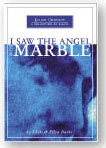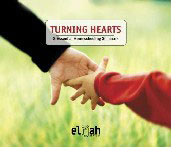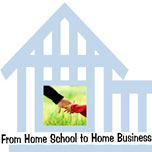
E-journal August 21, 2008 |
When her son was in grade school, Deborah Phelps was told by one of his teachers, “Your son will never be able to focus on anything.” Resources for AHDH The Survival Guide for Kids With ADD or ADHD by John F. Taylor Dr. Bob's Guide to Stop ADHD in 18 Days by Robert DeMaria The Disorganized Mind: Coaching Your ADHD Brain to Take Control of Your Time, Tasks, and Talents by Nancy A. Ratey The Gift of ADHD Activity Book: 101 Ways to Turn Your Child's Problems into Strengths by Lara, Ph.D. Honos-Webb How To Reach And Teach Children with ADD/ADHD: Practical Techniques, Strategies, and Interventions by Sandra F., M.A. Rief The ADHD Parenting Handbook: Practical Advice for Parents from Parents by Colleen Alexander-Roberts Driven To Distraction : Recognizing and Coping with Attention Deficit Disorder from Childhood Through Adulthood by Edward M. Hallowell How to Talk So Kids Will Listen & Listen So Kids Will Talk by Adele Faber The Five Love Languages of Children by Gary Chapman The "Putting on the Brakes" Activity Book for Young People With ADHD by Patricia O. Quinn, Judith M. Stern, and Neil Russell 10 Days to a Less Distracted Child: The Breakthrough Program that Gets Your Kids to Listen, Learn, Focus, and Behave by Jeffrey Bernstein Making ADHD a Gift: Teaching Superman How to Fly by Robert Evert Cimera Understanding ADHD: The Definitive Guide to Attention Deficit Hyperactivity Disorder by Christopher Dr Green and Kit Chee ADHD: Attention-Deficit Hyperactivity Disorder in Children, Adolescents, and Adults by Paul H. Wender The ADHD Workbook for Parents by Harvey C. Parker ADD & ADHD for Dummies by Jeff Strong, Michael O. Flanagan, and Lito Tejada-Flores Empower ADHD Kids: Practical Strategies to Assist Children With Attention Deficit Hyperactivity Disorder in Developing Learning And Social Competencies by Becky Daniel-White and Kathryn E. Flora ADHD: A Survival Guide for Parents and Teachers by Richard A. Lougy and David K. Rosenthal The Attention Zone: A Parent's Guide To Attention Deficit/Hyperactivity by Michael Cohen ADHD Book: Living Right Now! by Martin L., M.D. Kutscher Life on the Edge: Parenting a Child with ADD/ADHD by David Spohn Be sure to sign up for our ejournal! Sign up below. Resources for rethinking education With over 4,000 copies sold in just a few months, I Saw the Angel in the Marble is becoming a home schooling best seller! This book represents the best of 15 years of Elijah Company articles. Find our more HERE>>
Resources to discover how your child learns best
|
It's Going Fast! My friend Susan is a home schooling Mom and she is very concerned about her children's health. Her son, Liam is allergic to almost every chemical known to man, so Susan has to be very, very careful what she allows him to play with. When he gets together with other children and they play with Play Doh, Liam can't play. The dyes and chemicals in the dough can not only make him very sick, they might kill him.
If you missed one of our From Home School to Home Business Conferences, you missed a great time.People who have attended tell us that it changed their lives—not only in the area of home schooling, but also in the area of creating their own sources of home income.This set is huge and filled with useful and encouraging information about how to be successful at home schooling and at home business! Find out more about this life-changing set of CDs HERE>> Building the Business of Your Dreams (8 CD Set) I've had requests for just the business portion of the From Home School to Home Business Seminar, so have developed a set of the business CDs from that set. It contains 8 CDs and includes sessions on The Entrepreneurial Mind, Multiple Streams of Home Income, Discovering Your Ideal Life and Ideal Business (2 CDs) , Developing a Business Plan (2 CDs), and The Importance of Business Relationships. Plus, there is a very important and insightful interview on Redeeming the Marketplace. Find out about this life-changing set of CDs HERE>> SALE PRODUCTS!
Limited Quantities “In an event in which he was supposed to be pushed, he had no peers. In a race in which there was to be stress, he became the picture of relaxation, so at odds with the feat he accomplished. With President Bush, the first lady and former president George H.W. Bush in the stands waving American flags, Phelps won the 400-meter individual medley at the National Aquatics Center in a world record time of 4 minutes 3.84 seconds — crushing his old world mark, winning an Olympic gold medal and likely sending chills through the rest of the competitors on hand, many of whom could succumb to Phelps in similar fashion later in the meet.” www.washingtonpost.com Hyperfocus Michael Phelps is described in countless articles as having laser-like focus on his swimming and single mindedness on being the best. His concentration has even been described as “other-worldly.” Those who know the qualities of ADD & ADHD understand his source of "other-worldly" concentration. It is called hyperfocus. So many things can enter an Olympic swimmer's mind to throw them off their stroke - little things - let alone the awareness that the President of the United States is right there watching you, or that you could be about to win the most gold medals in a row ever, or that your goggles filled with water and you had to finish one of your events blind. While extraordinary, Michael Phelps' super-human ability to focus during an event is actually one of the gifts of ADHD - the ability to trigger laser-like focus in an instant and hold that focus to accomplish the most amazing things. The typical understanding of ADHD is that those who have it can’t focus and concentrate. But that’s not entirely true, it is just that these kids are focusing on other things – random thoughts that pass through their heads, the bird singing outside, the itch of a bug bite. However, when someone with ADHD starts hyperfocusing on something they have a high level of interest in, that hyperfocus become a benefit. How to Trigger Hyperfocus Is there a way to channel this hyperfocus towards a specific result? The frustrated parent of a child with ADHD may ask, “I know my child with ADHD can focus for hours on his Nintendo games, but how can I get him to focus on his homework?!" The answer is PASSION or THREAT. Hyperfocus can only be effectively directed by passion or threat. Michael Phelps is gifted for two reasons: He has ADHD and he found his passion in swimming. The combination of ADD (or ADHD) and your true passion for something results in an amazing ability to focus, persevere and triumph through all odds to fulfill your passion. Hyperfocus can also be directed by pressure, stress, fear, or threat. In several interviews, Michael Phelps and his mother have described how, as a child, Michael was tormented and bullied by the other children and considered incapable of accomplishing anything important by his teachers. However, that same pressure, stress and fear does not help a person with ADD or ADHD hyperfocus in areas in which they have no interest. People with ADHD who have found their passion can be the best at anything they set their minds to, or, if not the best, better than most. When they combine hyperfocus with what they have an interest in or a talent for, they can do amazing things that defy all logic. Michael Phelps is the latest proof. Having the president watching, the first lady and the former President too, is enough to overwhelm most people. Add to that pressure the fact that you are on live TV with millions of people all over the world watching. And add even more pressure with the knowledge that not only your teammates, but the whole world is expecting you to prove that you can win. Most people would collapse under that much pressure, but for someone with ADHD who is living their passion, such pressure is simply more stimulation – it is like natural Ritalin. So, if you have a child with ADD or ADHD, watch for areas of passion, areas of hyperfocus. Feed those interests and provide opportunities for expression in those areas. There is no telling what your child can accomplish. And the frustration of ADHD may actually become a blessing. Congratulations Michael and a special thank you from everyone with ADHD! Be sure to sign up for our ejournal!
Sign up below.
|
 Olympic Roses for Mom
Olympic Roses for Mom

 Endangered Minds
Endangered Minds

 Life Skills for Kids
Life Skills for Kids

 Homeschooling the Early Years
Homeschooling the Early Years
 What Your Kindergartner Needs to Know
What Your Kindergartner Needs to Know Discover Your Child's Learning Style
Discover Your Child's Learning Style Discover Your Children's Gifts
Discover Your Children's Gifts Dreamers, Discoverers and Dynamos.
Dreamers, Discoverers and Dynamos.




